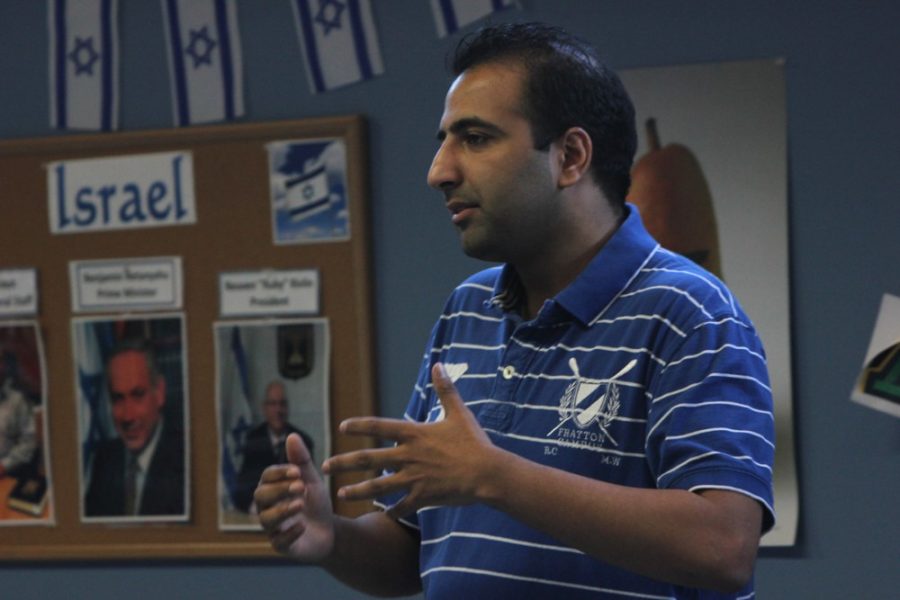Last night, the UA Hillel Foundation held a special lecture sponsored by Christians United for Israel, featuring Kasim Hafeez.
Many gathered, both UA students and Tucson community members alike, to hear Hafeez address one of the most controversial and growing debates: Zionism and Israel as a state.
Jessica Marzucco, the Western field director for CUFI on the UA campus, introduced Hafeez with a powerful statement, calling for universal attention of the pro-Israel debate.
“Israel is not a Jewish issue, but a human one,” Marzucco said.
Being a firm believer in both Islam and Palestine, Hafeez said he fights for a change of view in regards to how many view Israel. While Hafeez is a strong supporter of Israel and the idea of a homeland for the Jewish people, he did not always follow this ideology.
For much of his life, Hafeez said he was extremely anti-Semitic, and he had skewed views of what Israel and its people had stood for.
This idea stemmed from an idea of victimization he felt as a Muslim in the Western world, Hafeez explained, and this very victimization is something that still fuels the skewed views of Israel today.
“An idea that was taught was that of victimology, that as a British Muslim, you were a victim to Western society,” Hafeez said.
One of the main problems Hafeez addressed was the ideas that he was exposed to during his time in university. He said he fears that students are still receiving the same exposure to the anti-Israel and anti-Semitic ideas that he did.
With the recent attack in the Jewish marketplace in France earlier this year, as a Western European, he explained that the anti-Semitism situation is a very real problem that still exists today.
Even during his time in university, Hafeez said he became further immersed in anti-Israeli ideas. He said he now travels to various college campuses in hopes of eradicating the skewed views that he once held in his college years.
“I became more involved in [Muslim] extremist ideas,” Hafeez said. “I found that there were strong anti-Israel messages in university.”
Hafeez encouraged university students to reject skewed views of Israel that are all too popularized, stressing, “It is easier to hate a symbol than the individual,” and, “Without Jewish people and Judaism, there would not be Christianity or Islam.”
After the lecture, Hafeez took audience questions and provided answers, sometimes personal, to various lecturegoers.
He explained that even though he lost contact with his family, he still sticks to his changed view and urges others to change their opinions as well.
After the lecture, Daniela Tascarella, president of CUFI and a senior studying Judaic studies and political science, gave her thoughts on Hafeez’s message and what change she thinks it can bring.
“I really liked his message,” Tascarella said. “It’s encouraging to hear that people can really learn and hear the truth about Israel, that opinions can change and that there’s hope.”
Hope is exactly what Hafeez and CUFI both said they have in university students. Hafeez said he hopes to create a stronger discourse about Israel in college students and reject the misrepresentations many are faced with.
While biases have been present for many generations, there is still a long way to go in reaching a resolution, Hafeez said as he explained that this resolution begins with the youth and new generations.
Hafeez concluded his lecture by explaining the importance of young adults on college campuses and the change they can bring.
“Campuses have become the battleground for Israel’s reputation, and that’s why you guys are the most important,” Hafeez said. “You guys are standing on the front lines. You guys have a voice. You guys are standing up for a country that values human rights.”
_______________
Follow Lauren Renteria on Twitter.








